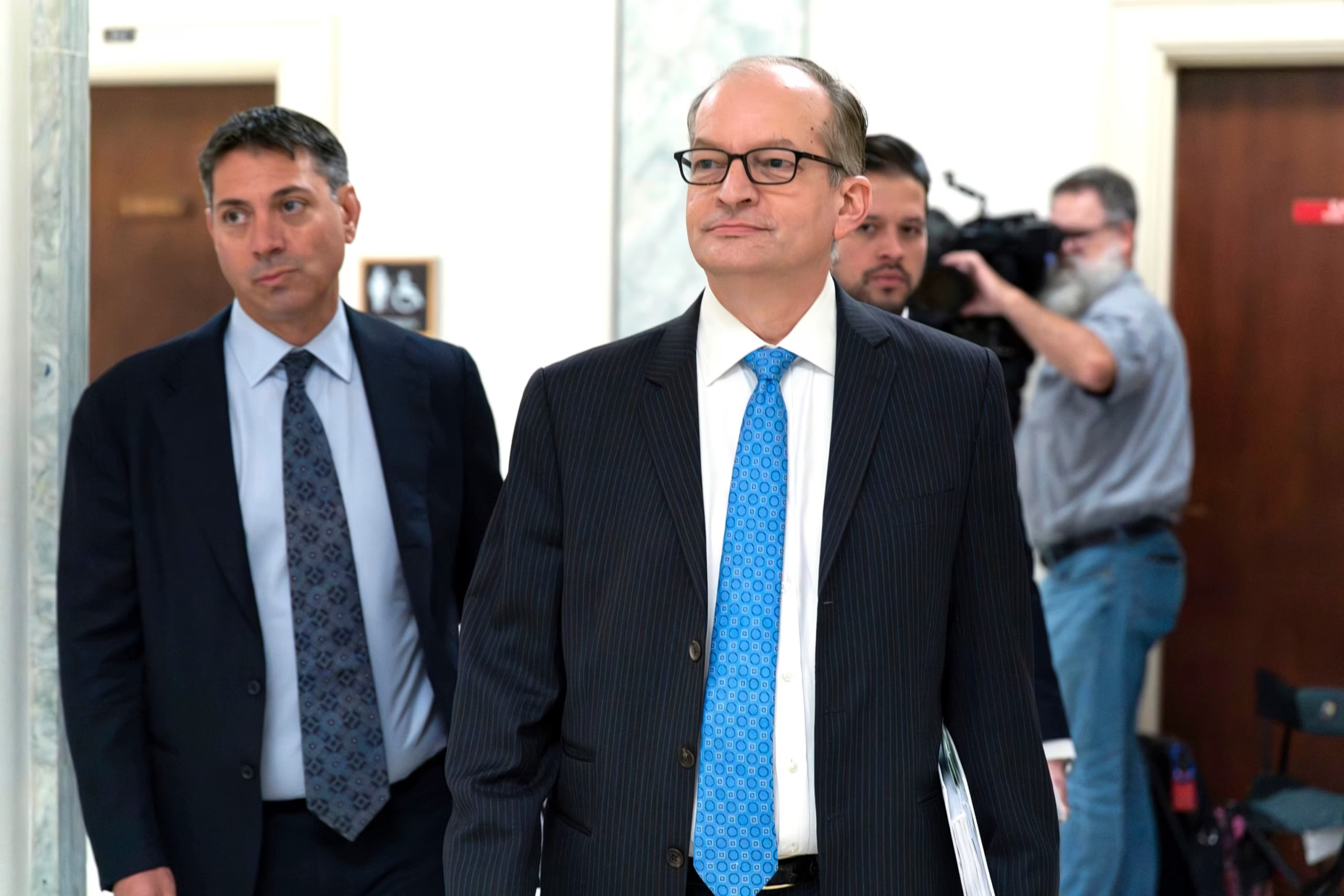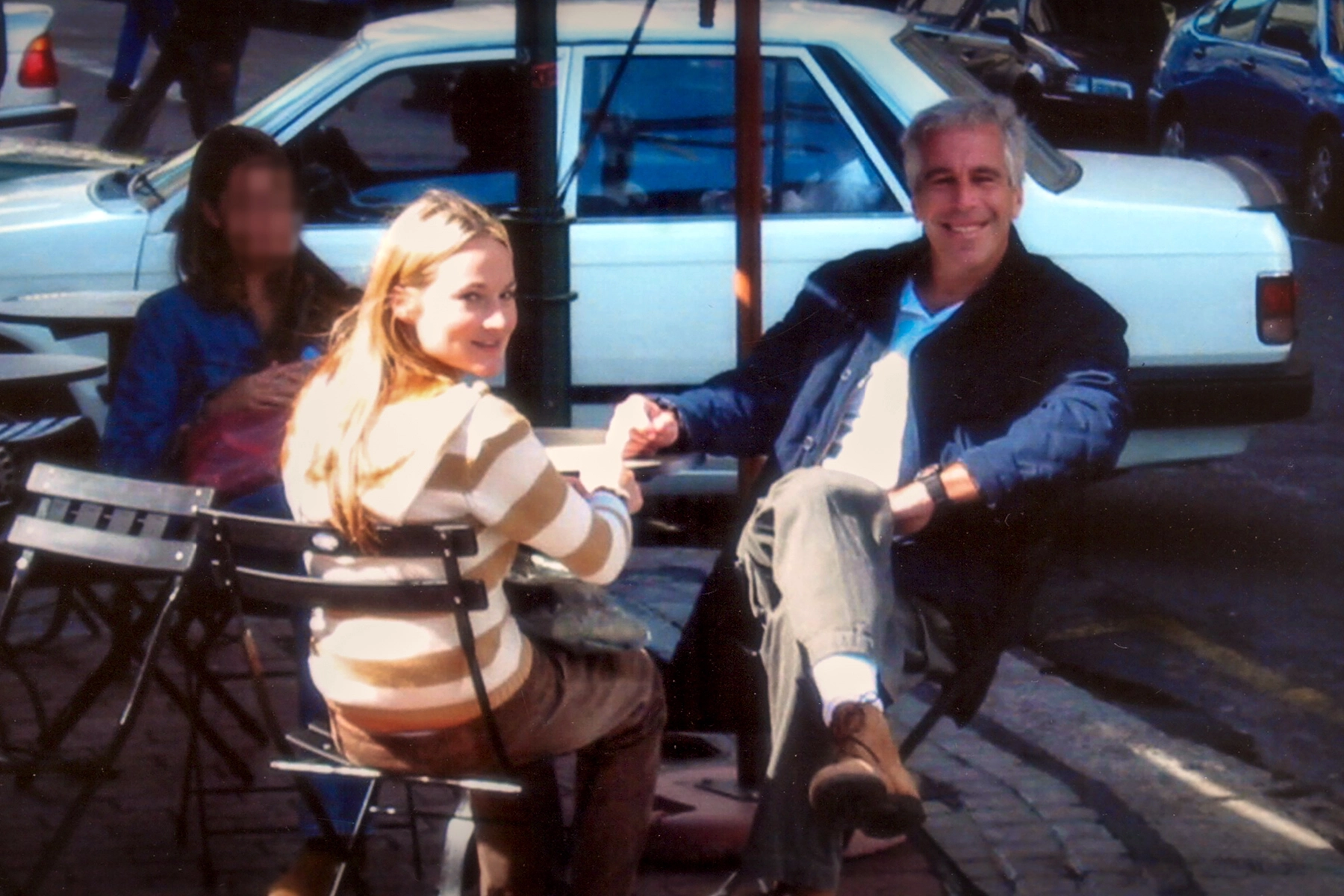Already a subscriber? Make sure to log into your account before viewing this content. You can access your account by hitting the “login” button on the top right corner. Still unable to see the content after signing in? Make sure your card on file is up-to-date.
A former US official who served as the architect of Jeffrey Epstein’s controversial 2008 plea deal provided closed-door testimony to Congress this week.
Some shit you should know before you dig in: If you’re unaware, Epstein’s 2008 plea deal with the US government has raised many questions over its leniency, secrecy, and legality. Despite being accused of sexually abusing and trafficking dozens of underage girls (some as young as 14), Epstein avoided federal charges and instead pleaded guilty to two state-level prostitution offenses. He was sentenced to 18 months in jail but served just 13, and was allowed to leave the facility for up to 12 hours a day, six days a week, under a work release program rarely, if ever, granted to sex offenders. During these releases, he was accompanied by privately hired bodyguards (not law enforcement) and was allowed to receive female visitors at his office (some of whom later alleged further abuse occurred during this period). The deal also granted immunity to any unnamed co-conspirators, which shielded others involved in his trafficking operation from prosecution.

What’s going on now: Alexander Acosta, the former US attorney who negotiated that now-infamous deal, appeared on Capitol Hill this week for a closed-door, six-hour interview with the House Oversight Committee. This marked the first time Acosta has testified under oath about the Epstein plea agreement, and lawmakers from both parties pressed him on his decision-making, the secrecy of the deal, and whether outside influence played a role in letting Epstein off so lightly. According to Republican Committee Chair James Comer, Acosta was “cooperative” and provided information that would “advance the investigation,” though no explosive revelations appear to have come from the meeting. Comer confirmed that a transcript of the interview will be made public in the coming weeks.
Acosta reportedly defended his actions, maintaining that the plea deal was the best option available at the time due to perceived weaknesses in the evidence and concerns about victim credibility (arguments he’s made publicly before). He denied ever meeting Epstein or his associate Ghislaine Maxwell and claimed he never saw Donald Trump’s name in any case-related documents. He also said he received assurances that Epstein would not be granted work release, and expressed “remorse” over how the state ultimately handled Epstein’s jail time. According to Democrats in the room, Acosta was evasive, unapologetic, and repeatedly refused to call the plea deal a “sweetheart deal.”
Democrats on the committee were particularly critical of Acosta’s refusal to take responsibility for the impact the deal had on Epstein’s victims. Rep. Maxwell Frost said Acosta essentially admitted he didn’t trust the victims’ testimony to hold up in court, which Frost called “deeply disturbing.” Rep. Suhas Subramanyam described Acosta as showing a “clear lack of remorse,” and others said his memory appeared to fade whenever pointed questions were asked. They also voiced frustration that Acosta wouldn’t address whether outside pressure or influence affected his decisions, especially given the known relationships between Epstein’s legal team and senior figures in Acosta’s office.
One subject that did not appear to be addressed directly (at least publicly) was the long-circulating theory that Epstein had ties to US or foreign intelligence. While past speculation has suggested the plea deal may have been influenced by intelligence-related considerations, Acosta did not speak to those claims during his testimony, according to both Republican and Democratic summaries.







